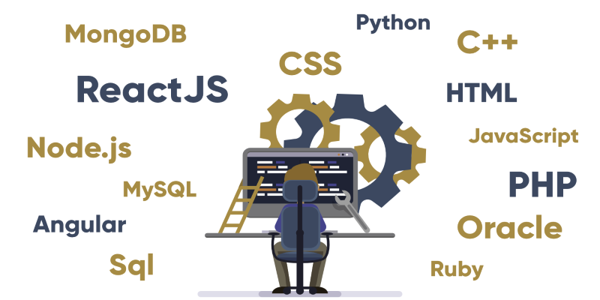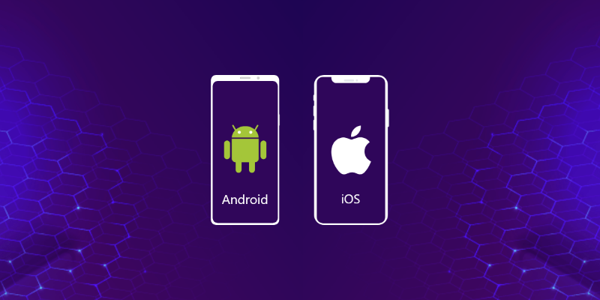Top 10 Online Computer Courses That Are Booming Right Now
Which online courses are worth your time? The internet is filled with computer courses that promise the moon, but not all of them can deliver on their promises. How do you figure out which ones will help you get ahead? Let’s walk through ten of the most in-demand computer courses online right now—each one with practical, real-world value.
Data Science with Python or R
If data is the new oil, data science is the refinery. Companies across every industry need people who can extract insights from all the data they have.
Courses like "IBM Data Science Professional Certificate" on Coursera or "Data Science with R" on edX teach you how to analyze large datasets, visualize patterns, and make informed, data-driven decisions. Python is the most beginner-friendly tool, while R remains popular in academia and for statistics-intensive roles.
Bonus: Even entry-level data analyst jobs can start at attractive salaries—and you don’t need a formal degree to get hired.
Full-Stack Web Development

Have you ever thought about building the next big app or redesigning a business's online presence? Full-stack web development teaches you how to do it all—from creating sleek front-end pages to building powerful server-side features.
Platforms like freeCodeCamp, The Odin Project, and Udemy’s “The Complete Web Developer Bootcamp” walk you through HTML, CSS, JavaScript, Node.js, MongoDB, and more. You’ll even build real projects that you can showcase in a portfolio. This course isn’t just trendy—it’s timeless. Every business needs a developer at some point, and freelancers with these skills are constantly in demand.
Cloud Computing (AWS, Azure, or Google Cloud)
Remember when everyone used to keep files on flash drives? That's ancient history now. Today, it's all about the cloud. Companies are willing to pay well for individuals who can effectively manage their cloud infrastructure.
AWS (Amazon Web Services) certifications are the most popular, but Microsoft Azure and Google Cloud are catching up. The "AWS Certified Solutions Architect" course on Udemy and "Google Cloud Fundamentals" on Coursera are two solid starting points for learning these concepts. Cloud computing is ideal for IT professionals seeking to elevate their skills—or anyone interested in assisting companies in scaling their apps or services without compromising server performance.
Cybersecurity Fundamentals
Data breaches, phishing attacks, ransomware—if it feels like cybersecurity is always in the headlines, it's because it is. That's why companies are hiring ethical hackers and security analysts at a faster rate than ever.
Online courses, such as "Cybersecurity for Everyone" by the University of Maryland or "CompTIA Security+" on LinkedIn Learning, cover the basics, including firewalls, encryption, network security, and risk management. You don't have to be a hacker to start learning cybersecurity. Many entry-level roles welcome beginners with basic IT knowledge and certification.
UI/UX Design
You’ve probably used a clunky app or confusing website and immediately clicked away. That’s where UI/UX design comes in—it’s all about making tech more user-friendly.
Courses like the "Google UX Design Certificate" on Coursera and the "UX & Web Design Master Course" on Udemy blend psychology, design, and coding into something beneficial and valuable. You'll learn about wireframes, user testing, prototyping, and design tools like Figma and Adobe XD. UI/UX isn't just for creatives. It's one of the most accessible ways to enter the tech industry if you have an eye for detail and a passion for improving digital products.
Artificial Intelligence & Machine Learning
AI is everywhere—from chatbots and recommendation engines to self-driving cars and automated customer support. The demand for machine learning experts is exploding.
If you're mathematically inclined or curious about intelligent systems, consider Stanford's Machine Learning course by Andrew Ng or "AI for Everyone" (a non-coding version). These guides walk you through core concepts such as supervised learning, neural networks, and deep learning. This field moves fast, but even understanding the basics gives you an edge in almost any tech role.
DevOps and Continuous Integration/Continuous Deployment (CI/CD)
Want to be the person who keeps code flowing smoothly from development to production? DevOps is the perfect blend of coding and IT infrastructure.
Courses such as "The Complete DevOps Engineer" or "Learn DevOps: CI/CD with Jenkins" focus on automation, version control, containerization (utilizing tools like Docker), and deployment pipelines. These are the tools that help companies release faster and safer software updates. It's a technical course, sure—but it's also one of the best-paying paths in tech today.
Mobile App Development (Android & iOS)

People spend more time on apps than websites—so naturally, mobile app development is big business. If you’ve ever had an idea for an app but didn’t know where to start, now’s your chance.
You can begin with iOS development using Swift and Xcode or Android development using Kotlin or Java. Try “iOS & Swift - The Complete iOS App Development Bootcamp” or “Android App Development Masterclass” on Udemy.
This is an excellent course track for those who enjoy building tangible products you can see and use every day. Plus, mobile apps are always in style—from startups to corporate solutions.
Blockchain Development
You’ve heard about cryptocurrency, but the real innovation is blockchain—the tech that powers it. It’s being used in finance, healthcare, supply chains, and even voting systems.
“Blockchain Basics” by the University at Buffalo on Coursera and “Ethereum & Solidity: The Complete Developer’s Guide” on Udemy are great entry points. You'll learn about smart contracts, decentralized apps (dApps), and token standards. This course isn’t just for crypto fans. If you like working on emerging tech with real-world impact, blockchain is worth exploring.
IT Support & Networking
Don't underestimate the power of foundational skills. Everything in tech—from cloud services to cybersecurity—relies on solid networking and support. The "Google IT Support Professional Certificate" is a favourite for beginners. It covers computer hardware, operating systems, system administration, troubleshooting, and basic networking.
This course is a significant first step if you're new to the tech world. It opens the door to help desk roles and system support jobs and sets you up for certifications like CompTIA A+ or Network+.
So, Which Course Should You Take First?
The short answer? It depends on your goals.
If you want to secure a job quickly and are willing to consider support roles, consider IT Support or Cybersecurity Fundamentals. Interested in tech but lean creative? UI/UX might be your jam. Got a math brain and love solving puzzles? Machine Learning or Data Science could be perfect.
Many learners try out a few shorter introductory courses before committing to a whole boot camp or certificate program. And that's okay! The best part of online learning is the freedom to explore until something clicks.
The world of technology is vast and open. Whether you're starting from scratch or building on experience, there's never been a better time to jump into a high-demand computer course. And who knows? A few clicks and classes today might change your career path tomorrow.


Tight Budget? Discover Affordable Online Engineering Degrees

Best Apps For Managing Your Job Hunt Efficiently (Without Losing Your Mind)

Design Spaces Like A Pro: Best Online Interior Design Degrees

6 Leadership Styles Every Leader Should Know (And Find Yours)
